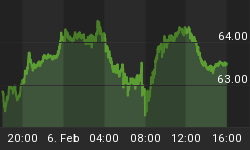The markets are on hold until November 3 when the Fed will announce its intentions of asset purchases to assist the flailing economic recovery. While we all know this will happen, the extent of the program - how much and for how long - is unknown. Whether this grand experiment works to stimulate the economy or just "goose" asset prices is another big question mark. Of course, all this tinkering would seem to increase risks in the eventuality that this program is a failure. In other words, what happens next if the economy continues to muddle through despite a $2 trillion stimulus?
It is unlikely that the Fed will disappoint the markets. They aren't in the business of making "things" worse (although the impact on the economy will be judged over time), and this Fed Chairman rarely disappoints. Rightly or wrongly, the markets have already given the Fed the green light to do what it needs to do, so therefore, it would not surprise me to see the Fed act in a bold fashion. Of course, why they need to act so boldly seems beyond the market's ability to comprehend, but a bold move is an acknowledgement that the economy is weaker than reported, and isn't that an indictment of quantitative easing? Round 1 of QE didn't work, so why should we expect round 2 to do anything for the economy.
What is clear is that the stock market is not the economy, and the Fed's actions appear to help Wall Street more than Main Street. I don't think that is their intentions, but maybe monetary policy can only go so far in its effects, and this recession/ depression will just need the tincture of time before we see the economy on the mend. In other words, despite the Fed's action, the economy will heal itself on its own time. However, that is the risk with all this meddling. It is unlikely to have an impact and I think there is significant risk that it could make things worse (i.e., prolong the healing phase).
What isn't being contemplated is what happens if the market gets what it wants and still sells off. What happens if Bernanke and crew come in with a flotilla of helicopters and drop $2 trillion just like that and the markets nose dive? What does that say about QE2? What does that say about the market's confidence in our Federal Reserve to get it right? What does the Fed do next? Do they have even any options left? This would seem to be the outlier scenario, but certainly worth contemplating.
Thinking about these scenarios and trying to position one's portfolio (i.e., take action) is complicated by the fact that the market is overbought and over bullish at this juncture. In addition, the preceding rally has been built on a poor foundation (i.e., diminishing volume), and lastly, any spike in commodity prices (as a result of asset purchases) will lead to higher yield pressures which will put a crimp in any equity rally. If stocks were deeply oversold at this juncture, this decision of what to do would be a no brainer. Go long! But I believe the potential for a nasty sell off is real even though that won't be the intention of the Fed's action. The technical set up isn't favorable, and the reaction to the Fed's actions is quite uncertain. I can only imagine the mad rush to the exits if the markets decide to abandon ship.
This makes for increasing risk in my opinion, and in such instances, I try to remind myself to stick to what I know and do best. I will try to remain flexible because you don't always get it right the first time.















